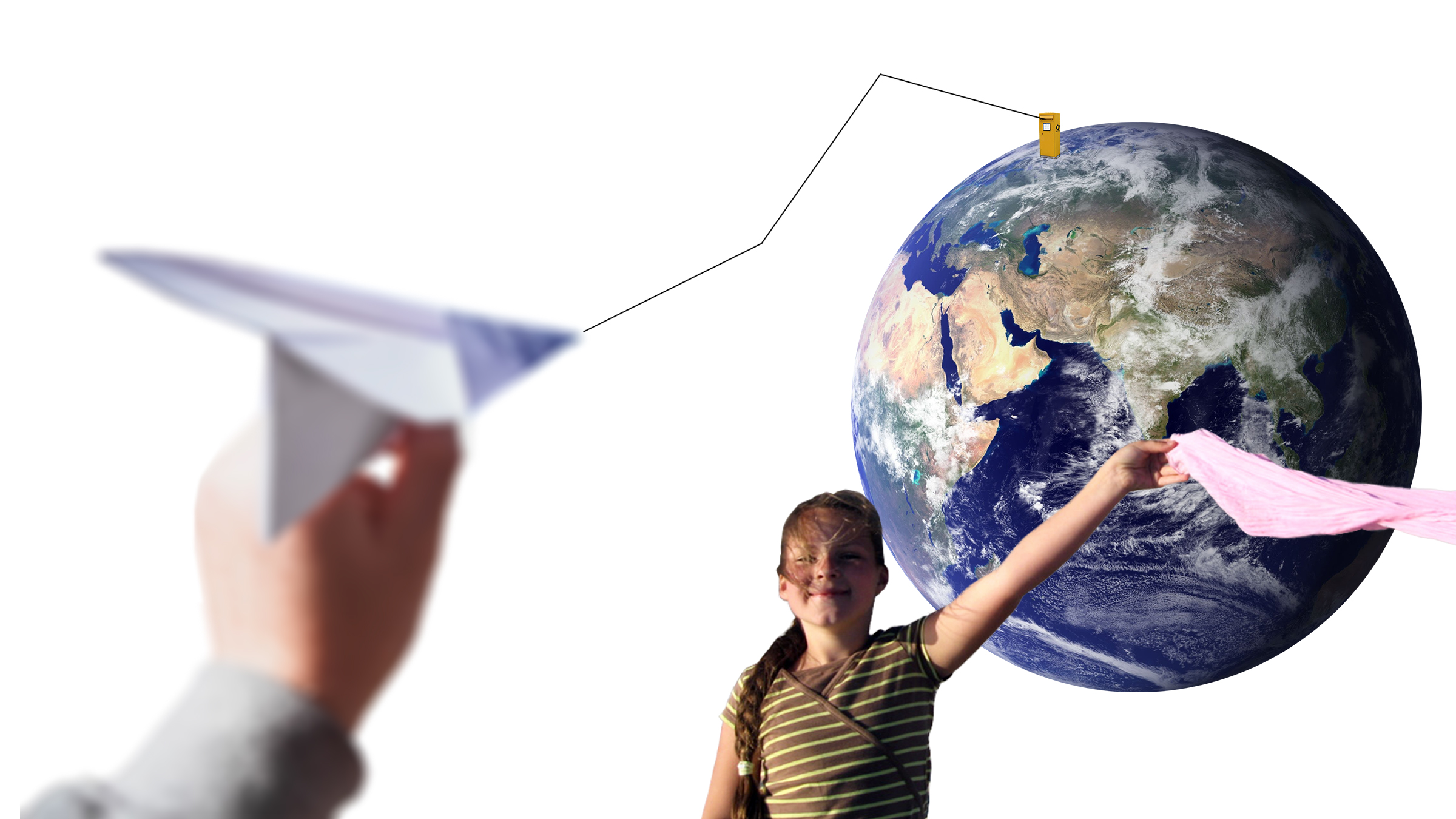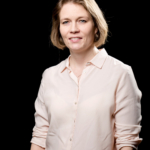The future laboratory is an intensive programme during which the participants have the opportunity to focus deeply on their priorities and accelerate their project. The training programme is based on future-oriented thinking, systems thinking and design thinking as well as social innovation. Most importantly, you will get to collaborate, have meaningful conversations and learn together with new people. The focus of Sitra Lab 3 is on the growing inequality of democratic participation.
Who is it for?
Sitra Lab is a training programme for change-makers. Examples of these include active citizens, those who engage in preparatory background work for political decision-making, reformists with vision and experts who want to apply their knowledge. What these groups have in common is the desire to address a current social problem and to take action to solve it.
We are looking for teams of three to five people to join the programme. The open application period for this training programme will end at 5 p.m. on 11 January 2021.
We are looking for teams that aim to expand or establish forms of societal participation for people who are in a vulnerable position. They could represent a movement, community or operating model that has already been successful in creating the experience of participation but is having issues related to the impact or dissemination of the model. The team’s initiative could also be a service or solution from a different field that the team wishes to apply to democratic participation.
What commitment will you make by participating?
We expect the participants of Sitra Lab to commit to attending 12 lab days in 2021. The lab days are attended by the entire group. While they are not necessarily full-day events, we recommend that you allocate sufficient time to them in your calendar. In addition to the lab days, we will have informal and optional coffee sessions.
Sitra Lab will mostly take place online. COVID-19 health restrictions permitting, we also aim to organise an in-person event.
We expect your team to allocate an average of two hours per week to working collectively on their project in addition to the lab days and coffee sessions. Your team’s own meetings will be especially important from June onwards, when the planning of the experiments moves to a more intensive stage.
Lab days: 8 April 2021, 13 April 2021, 27-28 April 2021, 6 May 2021, 18 May 2021, 15 June 2021, 17-18 August 2021, 31 August 2021, 20 September 2021, 14 October 2021, 9 December 2021
The application process
The application process consists of two stages. Of the teams that submit an application form by 11 January 2021, we will choose at most 15 to be interviewed. Of the interviewed teams, we will choose a maximum of 10 to participate. In putting together the final group of teams, we will consider the geographical distribution of the group, diverse approaches to change-making and bringing in different perspectives.
We hope to find applicants from different parts of Finland. We aim to organise at least one in-person event during the lab. For teams that need to travel, we will cover the travel and accommodation costs incurred from participating.
This instalment of Sitra Lab will mostly take place online and the development of the COVID-19 situation will be taken into account in the practical arrangements.
Schedule of the application process
- The application period for participants is from 1 December 2020 to 11 January 2021
- Interviews will be held during the period 1-16 March 2021
- The selected participants will begin their work on 8 April 2021
Evaluation criteria
In the application stage, we will evaluate your team’s diversity, commitment to the activities of the future laboratory and the opportunity or problem identified by your team.
With regard to the diversity of your team, we value the following:
- A versatile ability to understand the topic and related factors.
- Teams with diverse experience and the allocation of various roles in the organisation to team members.
- Various resources and influence methods that you can use to solve the problem you have identified.
- Increased diversity from having different genders, ages, experiences and education backgrounds represented and a team that consists of representatives of multiple organisations.
With regard to the commitment of your team, we value the following:
- Each team member being motivated to participate in the Sitra Lab future laboratory.
- Allocation by your team of the necessary resources to your work in the future laboratory. These resources can include, for example, time allocated to finding solutions to problems or using your team’s own funding.
- You can name a sponsor or supporter that has promised to help you as the project moves ahead. The sponsor may be from your organisation or an outside party. The key is that the sponsor knows your team and is prepared to assist your team by helping you refine your ideas, opening doors for your team or creating space for your experiments.
With regard to your teams’ description of the problem or opportunity, we value the following:
- You have identified a problem or opportunity for which you wish to use the future laboratory.
- You have described the problem or opportunity in a clear and understandable manner.
- You are able to demonstrate the scale of the problem or opportunity.
- You have provided a credible justification of the problem or opportunity.
This time around, we are looking for teams that already have an operating model, community, service or some other solution they want to develop further. The idea can even be a small-scale idea that has already been successful in creating the experience of participation but is facing difficulty with the impact or dissemination of the model. It could also be a service or solution developed for a different purpose that your team wishes to apply to democratic participation.
Opportunity to receive pilot funding
If your team is selected to participate in Sitra Lab, the legal entity behind the team may be eligible for pilot funding of up to 8,000 euros as the lab process moves forward. If your team’s background organisation is a commercial operator, it must be eligible to receive de minimis aid under the EU regulations governing public funding. Please note that you can apply for the future laboratory even if you do not wish to apply for, or need, funding.
Contacting us for answers to application questions
We will be available on Zoom at specified times to take questions on the application process. Please visit the event page (in Finnish) for more information.
Frequently Asked Questions
Can I put together a team that works in English or Swedish? If yes, is there a description of the future laboratory available in English or Swedish?
We expect that the teams that apply to participate can work in Finnish and English. For example, we have a lot of English-speaking specialists, which means that some of the work may be done in English. While we do not require perfect Finnish proficiency, it would be useful for you to be able to follow when Finnish is spoken.
Basic information on the future laboratory is available on our English and Swedish pages on the Sitra website.
Can we apply for, and participate, in Sitra Lab even if we do not represent an organisation (for example, you are a group of young people who wish to participate)?
Yes. An organisation is needed for us to pay pilot funding to an entity linked to it. If you do not work for the organisation in question, you should think about partnerships: for example, is your topic related to a school or hobby that could provide you with the organisation you need to receive pilot funding?
You refer to the future laboratory as a training programme. Does this primarily mean that the selected teams will learn as they participate in the process, or will Sitra provide some other type of training to the participants as well?
The future laboratory could also be described as a co-creation process or collective learning process, but the term “training programme” is easy to understand. We refer to the future laboratory as a training programme because learning is its main purpose. Learning will take place through action in a collective process with your team, the entire laboratory group and external specialists.
We expect that the group of participants will have a great deal of expertise on the theme of the lab. The training is not focused on the content of democracy and participation per se. Rather, the future laboratory will offer new approaches and tools for development, the solving of wicked problems and creating a sustainable future. At the same time, the participants will become part of a close-knit network in their field, consisting of specialists who approach the theme from different perspectives.
We don’t need pilot funding, but we’d still like to be involved. Can we apply to participate in Sitra Lab?
Yes, you can!
We don’t have a solution yet, but we have a community of a few hundred people that we could start with. Can we apply to participate?
Yes, you can. In the application stage, we value teams that do not start from scratch. Operating models that support participation and democracy are constantly being developed, and we would like to build on these efforts. That is why we are interested in operating models that are already creating experiences of participation. One fictional example of a potential applicant could be a neighbourhood café that is already operational and that you want to turn into a hub for political discussion.
What can the funding be used for? Can it be used to pay wages, for example?
The funding must be used to carry out experiments. The funding cannot be used for commercial activities or to purchase equipment such as computers.





Recommended
Have some more.